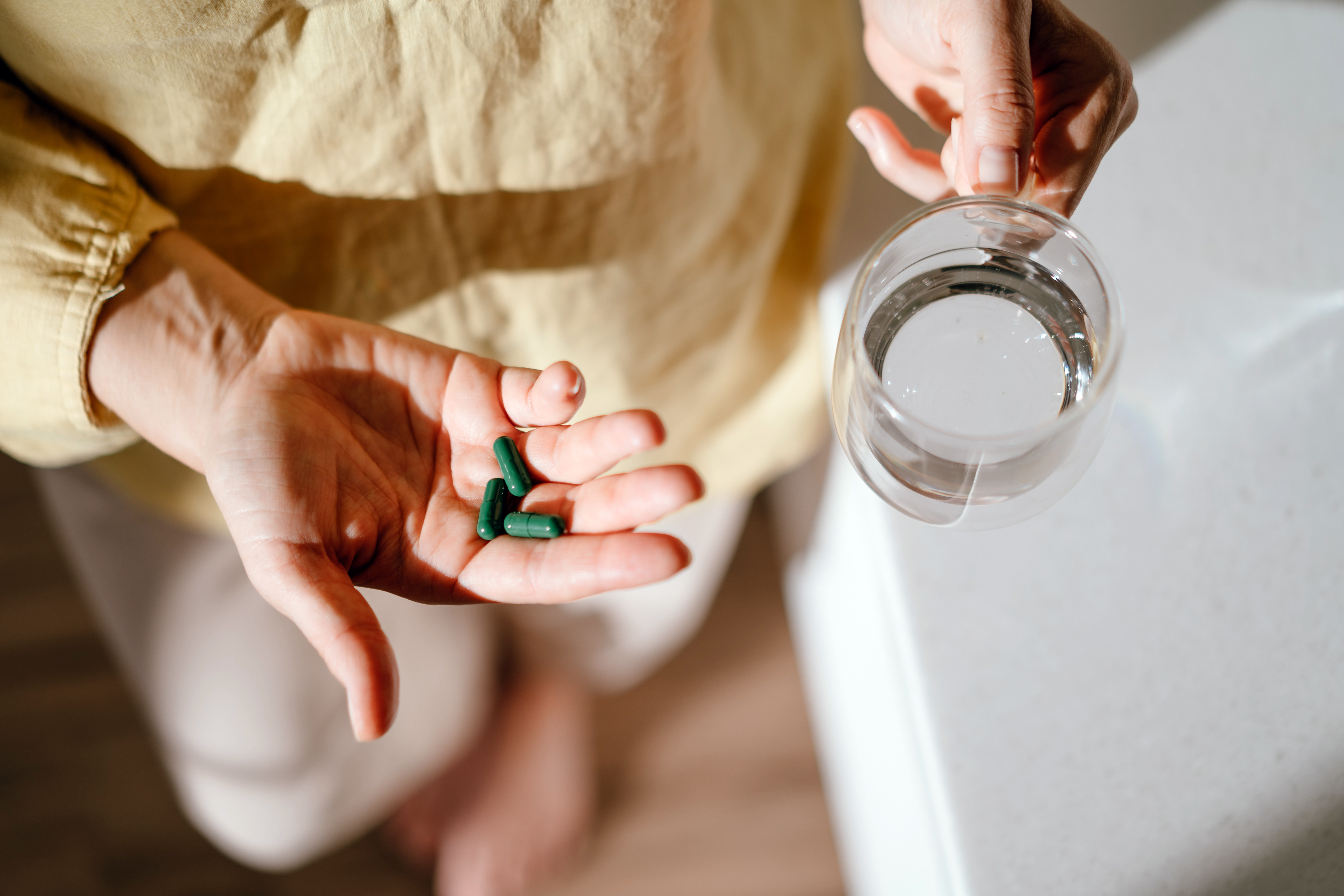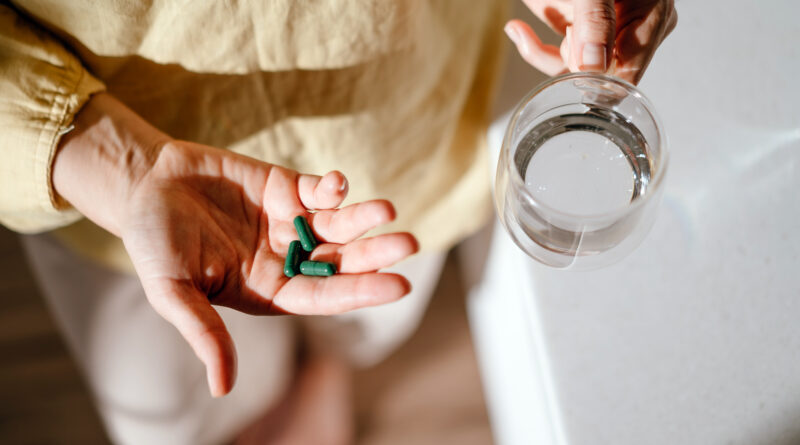7 Drugs to Avoid with Caffeine – or Risk Bleeding to Mental Illness
WHEN it comes to remembering to take your medication, it can be helpful to follow certain guidelines.
You might be one of those people who puts your pills back next to your morning cup of coffee or tea.

1
But some drugs may not mix well with your morning cup of Joe, which can distort their effectiveness or cause unpleasant side effects.
“Caffeine can interact with various medications, which can cause side effects or reduce the effectiveness of the medication,” Jacquie Lee, Numark’s chief medical officer and pharmacist, told The Sun.
“Patients should keep caffeine consumption steady and moderate to minimize any adverse effects or interactions with conventional medications,” he said.
“If patients want to reduce or eliminate caffeine from their diet, they should seek advice from their health care provider to assess any potential side effects of the medication. their common.”
Jacquie named seven medicines to avoid or be careful not to in your coffee – from blood pressure pills to antibiotics and asthma drugs.
1. Ephedrine
Ephedrine is a drug used to treat hypotension – also known as low blood pressure, when the ability of the blood to pass through the walls of the arteries is too low.
Some nasal sprays to reduce congestion used to contain ephedrine – these are no longer sold in the UK but can still be found in other countries, according to Patient.info.
Jacquie warned that mixing the drug with coffee can cause unexpected and sometimes serious side effects.
“Ephedrine when combined with caffeine is known to lead to blood pressure problems, subarachnoid hemorrhage and in some cases, psychosis,” he said.
“Caffeine should be avoided in patients taking this medicine,” Jacquie warned.
Hypertension is a sudden, severe increase in blood pressure, causing chest pain, shortness of breath, blurred vision, dizziness and vomiting.
You should get help right away if you think you are having a high blood pressure emergency.
Meanwhile, subarachnoid haemorrhage is a rare type of stroke caused by bleeding on the surface of the brain.
The NHS warns that you should call 999 for this medical emergency, which causes symptoms such as:
- A sudden headache unlike anything you’ve experienced before
- The neck is stiff
- Feeling sick
- Pain in the light
- Blurred or double vision
- Stroke-like symptoms – such as slurred speech and weakness on one side of the body
- Loss of consciousness or tremors (uncontrollable movements)
2. ADHD drugs
Medications used to treat attention deficit disorder (ADHD) and amphetamines are both stimulants – a class of drugs that enhance brain activity.
Jacquie warned against mixing drugs and coffee, due to the dangers of increasing their effects.
“Stimulants – such as amphetamines or ADHD drugs – can enhance effects such as increased heart rate, blood pressure and anxiety, when combined with caffeine, which is itself a stimulant,” the pharmacist said. said.
3. Asthma medication
Bronchodilators are a type of medication that makes breathing easier by relaxing the lung muscles and widening the airways.
They are often used to treat conditions such as asthma or chronic obstructive pulmonary disease (COPD), a group of lung conditions, often caused by smoking, the NHS says.
Caffeine can act as a mild bronchiodilator.
According to Jacquie: “Bronchodilators – such as theophylline – as well as drinking caffeinated drinks can raise theophylline levels.
“Similarly, the removal of caffeinated foods from the diet can reduce the length of the effective action of each dose of theophylline.”
4. Sleeping pills
Benzodiazepines are a type of sedative medication that slows down body and brain functions.
They can be used to help with anxiety and insomnia, depending on mental health charity Mind.
A class of medications known as Z-drugs may also be prescribed for sleep problems.
Diazepam and zopiclone are other common examples, according to Jacquie, who warned against taking them with coffee.
“With benzodiazepines and Z-drugs, caffeine seems to counteract the sedative – and possibly side effects – effects of these drugs,” the pharmacist explained.
5. Blood pressure medication
Beta blockers – such as propranolol and atenolol – and calcium channel blockers, including verapamil, are medicines used to lower high blood pressure.
Jacquie noted that both can interact with caffeine.
“Caffeine may counteract the effects of beta-blockers and increase blood pressure,” he warned.
“It is not necessary to avoid moderate consumption, but it may seem better to avoid excessive consumption.”
How to lower blood pressure
Chronically high blood pressure (hypertension) puts extra strain on the blood vessels, heart and other organs and can raise the risk of serious conditions such as heart disease, stroke and stroke. Here’s how to reduce it.
Reduce the salt
Adults are encouraged to reduce their salt intake to 6g per day (about one teaspoon) to avoid health effects including high blood pressure.
The top tip is to swap out table salt, according to the Salt Substitute and Stroke Study, to replace it with reduced sodium and potassium alternatives.
Cut down on alcohol
Drinking too much alcohol can narrow the blood vessels, which increases the risk of high blood pressure.
Legal drinking guidelines advise that people should not drink more than 14 units per week to reduce the health risks of alcohol.
Go away
Exercise is good for the heart and blood vessels.
Although the guidelines recommend 150 minutes of exercise a week, if you’re currently inactive, just walking to the grocery store every day is better than nothing, and you can work up from there.
Studies suggest that isometric exercises – when you hold the body in one position without moving, such as a wall squat or plank – are good for lowering blood pressure.
Stop smoking
Cigarette smoking is a killer. It causes the blood vessels to stick and narrow, which can cause a blockage.
Although smoking is not a direct cause of high blood pressure, it can cause an immediate rise in blood pressure, heart rate and reduce the amount of oxygen that enters the body’s cells.
Skip the coffee
Unfortunately, caffeine can cause a short, but significant increase in blood pressure – even if you don’t have high blood pressure.
Therefore, reducing coffee consumption is recommended as a lifestyle for those with high blood pressure.
Lose weight
The above tips can help you lose weight, which is good because being overweight is itself a risk factor for high blood pressure.
Being overweight forces your heart to work harder to pump blood around your body, which can raise your blood pressure.
The only way to know if you have high blood pressure is to have your blood pressure checked. All adults over the age of 40 are advised to have their blood pressure checked at least every five years.
As for calcium channel blockers, these can increase the amount of caffeine in the blood.
As a result, drinks such as tea, coffee, cola and other medicines – such as analgesics containing caffeine can cause negative effects when combined with drugs, such as drowsiness or insomnia.
“If these become problems, it should be advised to reduce the intake of caffeine,” Jacquie said.
6. Antibiotics
Antibiotics are used to treat or prevent certain types of bacterial infections.
It may be helpful to limit your caffeine intake if you are taking a regular class of antibiotics, Jacquie added.
“Quinolone antibiotics – such as ciprofloxacin – can increase the effects of caffeine,” he explained.
You may be advised to limit your intake of caffeine – including tea, coffee and cola drinks – if you have side effects, according to the pharmacist.
7. Diuretics
Finally, Jacquie said that diuretics are drugs that you should be careful with when combined with coffee.
Diuretics are sometimes called “water pills” because they make you pass more water to help remove excess water from your body.
He said: “The effects of diuretics, such as furosemide, are increased when taken together with caffeine.
“Caffeine also has diuretic properties.”
Furosemide is used to treat high blood pressure, heart failure and a build-up of fluid in the body called oedema.
Food and medicinal ingredients to avoid
Tea and coffee are not just drinks, you need to be careful about mixing them with other medicines.
Drinks like grapefruit juice – along with other foods – can make a difference in the way our bodies deal with drugs.
Some drug and food combinations can even cause blood loss or damage to the liver.
Here are a few things you should know:
- Grapefruit and statins – fruits or juices can increase the risk of side effects from cholesterol-lowering drugs
- Milk and antibiotics – milk, cheese and yogurt can interfere with the absorption of antibiotics
- Leafy greens and blood thinners – kale, spinach and romaine lettuce can alter the effects of blood thinners such as warfarin, increasing blood clotting.
- Alcohol and painkillers – some painkillers can lead to dizziness, drowsiness, liver damage and other serious problems when combined with alcohol.
Read more about drug ingredients and foods you should be aware of here.
#Drugs #Avoid #Caffeine #Risk #Bleeding #Mental #Illness
